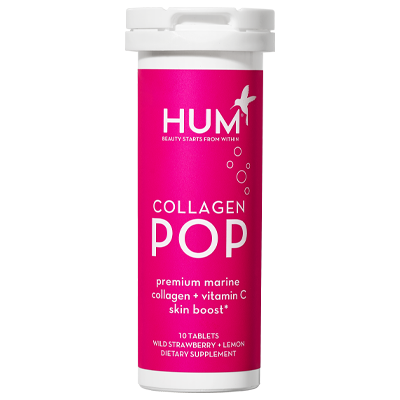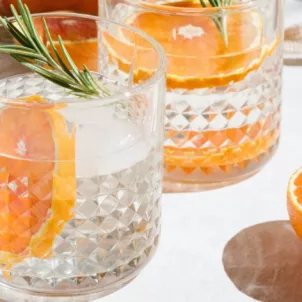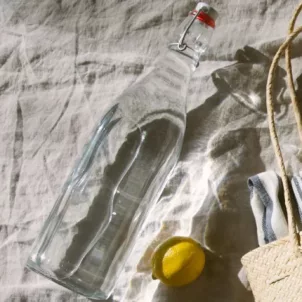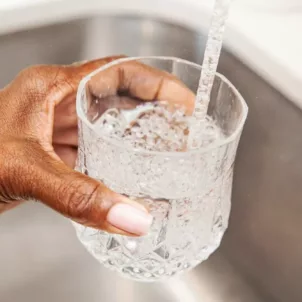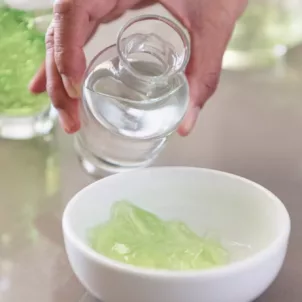Does sparkling water hydrate you? The bubbly beverage has boomed in popularity, but does sparkling water count as water, or do you need to drink tap water, too? Dietitians explain the benefits of sparkling water.
Once upon a time, you’d go to a fancy restaurant and be asked if you wanted still or sparkling water—and, more times than not, you likely opted for the former. Nowadays, however, sparkling water has exploded into a massive category, nearly taking over the beverage market, and ultimately landing in every major restaurant, grocery store, and convenience shop across the world. According to Grand View Research, the global sparkling water market size was estimated at $29.71 billion, with an expected growth rate of 12.6 percent from 2021 to 2028.
Suffice it to say, if you’re wondering if sparkling water is just a trend, research says otherwise—seemingly, it’s here to stay. But why? While some people love the bubbly beverage for its carbonation sans sugar, others gulp it down under the assumption that, given it’s a type of water, it must be quite hydrating. But does sparkling water hydrate you? We spoke with two dietitians to find out.
What is Sparkling Water, Exactly?
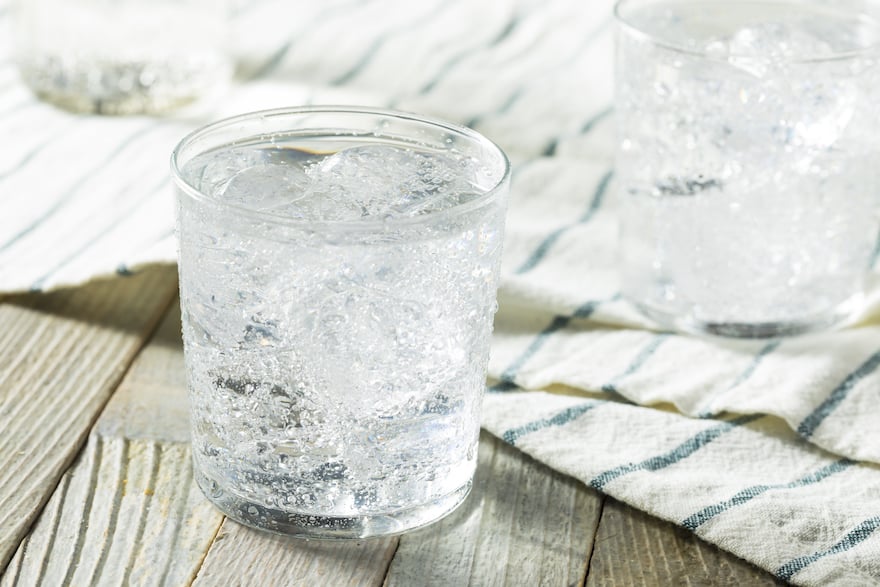
In short, sparkling water is plain water that’s infused with dissolved carbon dioxide (CO2) gas, which is what gives it its bubbly effect. Scientifically speaking, the process of carbonation is quite simple. “Carbon dioxide is a nontoxic, inert gas that can exist in all three phases of matter: a solid, liquid, or gas,” explains NYC-based dietitian Jennifer Maeng, RD, LDN. “The manipulation of both temperature and pressure can create carbonation, and this environment can be created naturally or artificially.” For example, she says that Perrier sparkling water comes from the environment of a naturally carbonated spring, whereas other brands, like Polar Seltzer, rely on artificial carbonation. “To artificially create carbonated beverages, CO2 gas is pushed over what is called a critical point and becomes liquified by increasing pressure and decreasing the temperature. At this stage, the CO2 is infused into the water, and the vessel is sealed.”
In short, not all bubbly water is created equal. And not all carbonated water is innately the same thing. As Maeng points out, seltzer, club soda, and sparkling mineral water are all different but are often confused.
So what’s the difference between seltzer vs. sparkling water? “Seltzer is the same thing as sparkling water, and is simply water that has been infused with carbon dioxide gas to become carbonated.” Some people may also call this carbonated water. Then there’s sparkling mineral water (think: Topo Chico), which Maeng says is naturally carbonated spring water. Certain brands, like San Pelligrino, contain naturally-occuring mineral water that is then infused with CO2 to carbonate it, so you’ll still see it labeled as sparkling mineral water. What sets sparkling mineral water apart, according to Maeng, is that it will have naturally occurring minerals like different salts and sulfur compounds depending on the original source of the water spring. “Minerals like sodium, calcium, and potassium are found in very small amounts in these waters,” she adds.
Club soda, however, is seltzer infused with potassium bicarbonate and potassium, which Maeng points out gives the drink a slightly saltier flavor and a more robust profile as a whole, hence why it’s so often preferred by bartenders. (As a former bartender myself, I can attest: I never mixed drinks with seltzer or sparkling mineral water, it was always club soda).
Does Sparkling Water Hydrate You?
Now, the question you’ve all been waiting for: Does carbonated water hydrate you in the same way regular water does? Despite what myths say, Maeng assures us that sparkling water is hydrating.
“However, it does not hydrate you any better than regular water, unless of course you drink more of it because you enjoy the taste,” she says. Still, she wouldn’t recommend completely swapping in carbonated water for your daily hydration needs. The reason? If you have IBS, acid reflux, or gastroesophageal reflux disease (GERD), she says that drinking carbonated beverages (especially in excess) can make bloating, gas, and burping symptoms worse. What’s more, she says that “excessive consumption of carbonated beverages can lead to decreased tooth enamel because of lower pH from CO2 gas and any acidic flavoring.” With that in mind, Hanley reminds us that plain, unflavored carbonated water won’t damage enamel—no matter how much you consume. It’s the flavored varieties you have to worry about in excess.
Is Sparkling Water Good for You?
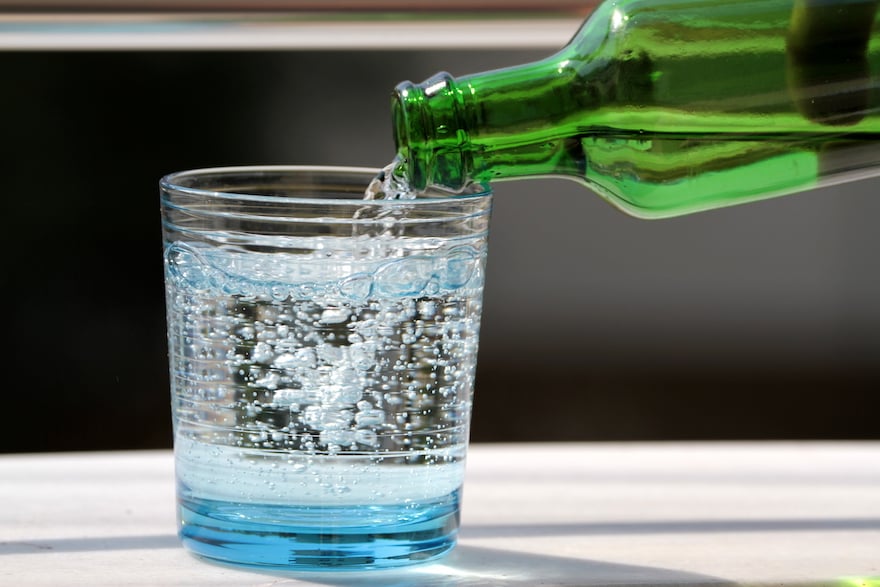
There are definitely benefits of sparkling water, but it all comes down to the ingredients, says Heather Hanley, RD, a registered dietitian with Everlywell. “Carbonated water is a healthier option than sodas, as it does not contain any sugar or sugar substitutes and is free of colorings and artificial flavorings,” she explains. It’s because of this that Hanley thinks sparkling water has risen to such fame. “One likely reason sparkling water has increased in popularity is the increased public awareness of the health disadvantages of drinking sodas,” she says.
What Ingredients Are in Sparkling Water?
Most often, fizzy water is made of water and carbon dioxide with natural flavors. Although many sparkling waters are formulated without sugar or coloring, that’s not to say that all offerings are. Depending on the type of sparkling water you choose, Maeng says that ingredients can include:
- Sweetening agents: dry or liquid sugar, non-nutritive sweeteners like aspartame
- Color: natural or artificial, primarily for a nice aesthetic “look”
- Acids: citric, gluconic, tartaric, or phosphoric, all of which to get flavor and are derived from fruit, vegetables, or are straight-up artificial
- Herbs, Vitamins, Adaptogens, or CBD
With that in mind, Maeng says to be a discerning consumer, and do not believe claims that a seltzer will “calm” or “energize” you. “Check the labels with these types of added ingredients, and check with your dietitian before drinking it, especially if you have specific health concerns,” she suggests.
What Makes a High-Quality Sparkling Water?
Although some people may prefer one type of sparkling water over another based on flavor notes, generally speaking, a high-quality sparkling water is dependent on its packaging. “More CO2 naturally diffuses (escapes) out from plastic, as opposed to a glass bottle, and even less so out of a sealed can,” Maeng says. “This is why sparkling water aficionados usually swear by their favorite brand, based on the slightly variable tastes in water minerals, and the type of container it comes in.”
Homemade vs. Store-Bought Sparkling Water
Like most things, homemade sparkling water tends to be more customizable, and can, in effect, taste better and be better for you.
“Depending on the quality and type of your tap water, the ultimate taste of your homemade seltzer will differ from any store-bought brand,” Maeng says. “The natural minerals and salts in your homemade seltzer will also vary.” That said, since most soda machines—like the SodaStream Terra ($129.99)—give you the power to adjust the level of carbonation in your homemade seltzer, she points outs that homemade sparkling water can be better tailored to your taste and carbonation preferences.
If you’re trying to drink more water in general to stay hydrated, making it at home may make it easier for you. Another perk of homemade sparkling water is that it’s generally less expensive and more sustainable (since there’s less packaging and waste).
Is it Healthy to Drink Sparkling Water Every Day?
It sure is! So long as you reach for seltzers made without sweeteners, Maeng says you have nothing to worry about. “There are no specific guidelines about specific quantities of seltzer you can drink daily, however, I would recommend listening to your body,” she adds. “If you experience lots of gas, burping, have any specific GI issues, or tooth enamel issues, limit your intake and check with your doctor or dietitian.”
